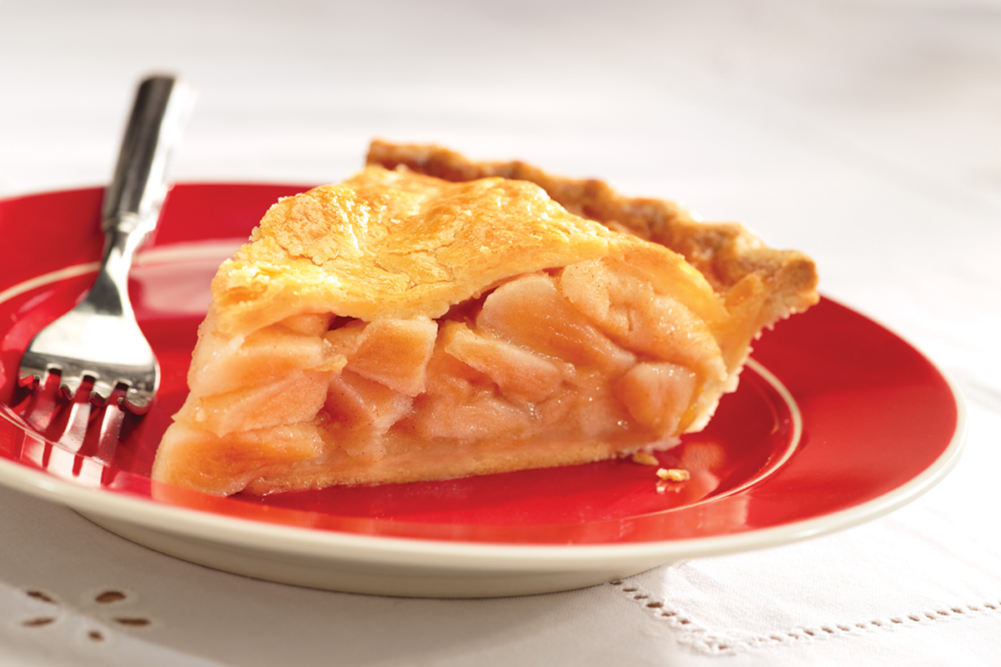Restaurants may be open again after their COVID-imposed closures, but many Americans are still eating at home more because of the money they realized they could save vs. restaurants. Soaring gas prices and higher inflation in general has only made them more likely to pick at-home dining.
“I think retail demand for eating at home is still very strong,” said Tom Cavanaugh, vice president of sales and marketing for West Newbury, Mass.-based Gardner Pie. “Even if the prices of a center-plate item and a slice of pie are the same, there’s no alcohol, no tip, the gas to get there and back, so it’s still lower.”
While inflation and supply chain snafus have affected most corners of the food industry, makers of pies sold in grocery instore bakeries face a unique challenge in addition to those common ones: lower industry capacity due to several large producers leaving the market.
In the past, those problems could have been met with a hiring surge, Cavanaugh said. In today’s super-tight labor market, however, that’s usually not an option.
“People making X in a manufacturing job can make the same amount working in a retail job that’s easier,” he said.
The labor crunch poses another problem for Gardner: many of the cherries, apples and other fruits that go into the company’s fresh fruit pies are going unpicked because of an agricultural labor shortage.
Despite all of those hurdles, however, instore pie sales are still up, Cavanaugh said.
Gardner has had to streamline its operations in order to meet that demand, focusing on its top sellers and limiting experimentation in new products.
“From a manufacturing standpoint, we’ve made some decisions over the past two years to look at our throughput,” Cavanaugh said. “How can we make more pies, faster. We’ve had to put some products on pause, though we intend to go back to those varieties.”
Topped pies and individual pies, more than individual flavors, are among the products Gardner has cut back on to deal with the current labor and supply chain issues.
“We’re focusing on 9- and 10-inch pies because that’s in our wheelhouse,” Cavanaugh said.
And that could be the case at least through 2023 — Gardner doesn’t see the supply chain and inflation-related issues going away anytime soon.
“If I had to guess right now, I think we’ll still be in pause position.”
Gardner has made significant investments in infrastructure just to get by during this “pause” period. The company used to make pies using a just-in-time mentality, but Cavanaugh said that’s no longer possible.
“You just can’t do that now, and I don’t think we’re ever going back to just-in-time inventory, if it does occur, it’s going to look a little different.
A new tunnel oven for pre-baked pies, other new equipment and robotics to save labor are among the changes the company has made. Through this adjustment process, Gardner has had to balance how it maintains the artistry it’s known for with the efficiency demanded by a customer base that wants what it wants when it wants it.
“One of our core values is quality, and we don’t want to lose that in place of automation,” Cavanaugh said.
Using cane sugar instead of high fructose corn syrup, real fresh fruit instead of fillers — those are things Gardner won’t compromise on, regardless of the hurdles it has to jump over.
“We’re not trying be everything to everybody. We believe our customer has a certain amount of loyalty and discretionary income.”
Quality and variety
One of Gardner’s main differentiators is the quality and variety of fruit pies it offers. In addition to its traditional Ida red apple pie, for instance, Gardner offers apple pies made with Honeycrisp and granny smith varieties and a Country Cinnamon apple pie. Gardner developed its Honeycrisp pie at the request of a retail partner, Jewel Osco, which saw a merchandising opportunity with fresh Honeycrisp, Honeycrisp cider and other products made with the popular variety.
“They may not be the most exciting, but granny and Honeycrisp sell very well,” Cavanaugh said. “They’re familiar with a twist. Not everybody can say they have a 100% Honeycrisp or granny.”
Similarly distinctive is Gardner’s blueberry pie, which is made exclusively with wild blueberries, which tend to be smaller and sweeter than cultivated blueberries.
Gardner’s also uses Super Grade A Michigan cherries for its cherry pies, sources wheat locally when it can and tries to keep a close rein on its other ingredient sourcing. That can be a hindrance at times, Cavanaugh said, during the current supply chain problems.
Demand for fruit pies has been high this summer and, as usual, should trend back to pumpkin, pecan, custard and other heavier pies in November and December, said Dan Moats, certified master of baking for Stratas Foods.
While other foods are struggling due to inflation, pies are an exception, Moats said.
“Pies are perceived as a comfort food and comfort foods tend to do well in a struggling economy.”
That said, experimentation is definitely on the back burner thanks to current economic conditions, Moats said.
“I don’t see many new trends. It appears that bakeries and companies are just trying to stay afloat labor wise with existing SKUs.

